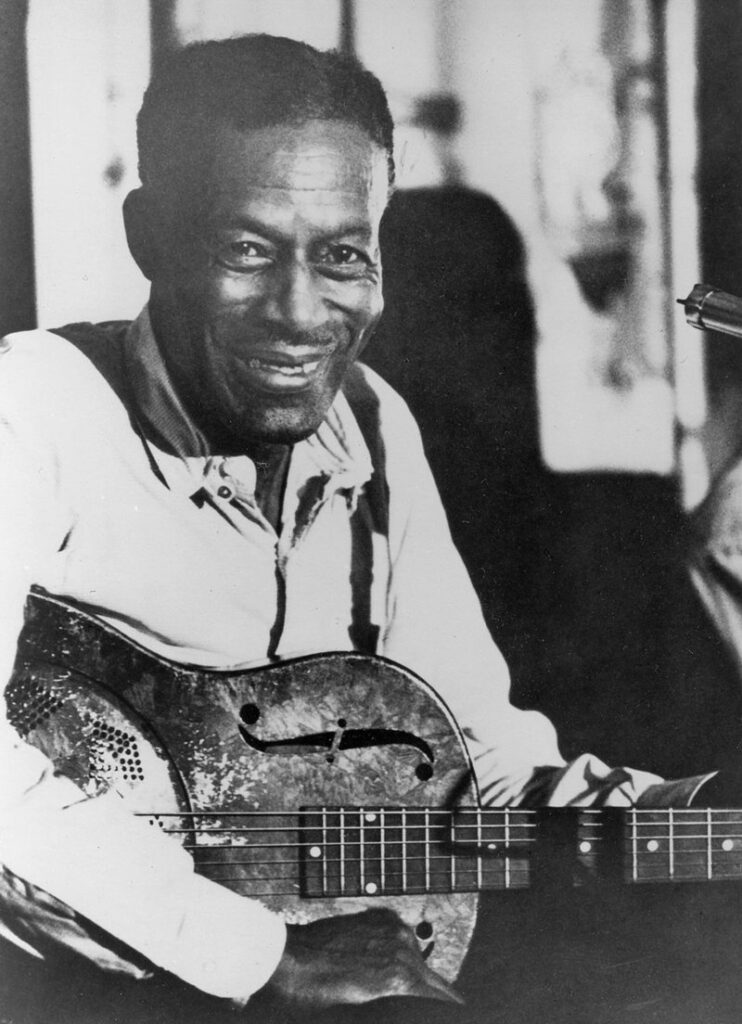- Birth and Early Life: Son House was born Eddie James House Jr. on March 21, 1902, in Riverton, Mississippi. His parents were both musicians, and he grew up in a musical household deeply rooted in the African-American blues tradition.
- Influence of Charley Patton: Son House was heavily influenced by fellow bluesman Charley Patton, whom he met in the Mississippi Delta. Patton became his mentor and greatly impacted House’s musical style and approach to the blues.
- Revival of Interest: After disappearing from the music scene for many years, Son House was rediscovered during the folk blues revival of the 1960s. His raw, emotional style captivated audiences and inspired a new generation of musicians.
- Legendary Recordings: Son House recorded some of his most iconic songs for Paramount Records in the late 1920s, including “Preachin’ the Blues” and “My Black Mama.” These recordings are considered classics of the Delta blues genre.
- Life as a Preacher: In addition to his music career, Son House was ordained as a preacher in the Baptist church. He often drew on religious themes in his music, blending the sacred and the secular in his powerful performances.
- Incarceration and Release: House spent time in the infamous Parchman Farm penitentiary for a shooting incident in the 1920s. His experiences there deeply influenced his music and added a raw authenticity to his performances upon his release.
- Influence on Other Musicians: Son House’s impact on the blues cannot be overstated. Artists like Robert Johnson, Muddy Waters, and Howlin’ Wolf cited him as a major influence, and his music laid the foundation for the development of rock and roll.
- Later Years and Legacy: In the 1970s, Son House enjoyed a resurgence in popularity, performing at folk festivals and recording new albums. He passed away on October 19, 1988, but his legacy lives on through his recordings and the musicians he inspired.
- Signature Style: Son House was known for his intense, passionate singing style and his mastery of the bottleneck slide guitar technique. His music often featured hypnotic rhythms and haunting melodies that reflected the struggles and sorrows of the African-American experience.
- Recognition and Honors: In recognition of his contributions to music, Son House was posthumously inducted into the Blues Hall of Fame in 1980 and the Rock and Roll Hall of Fame in 1987. His influence on American music continues to be felt to this day.
Son House’s life and music remain a testament to the enduring power of the blues as a form of artistic expression and a vehicle for social commentary. His legacy continues to inspire and influence musicians around the world, ensuring that his voice will never be forgotten.


Comments are closed